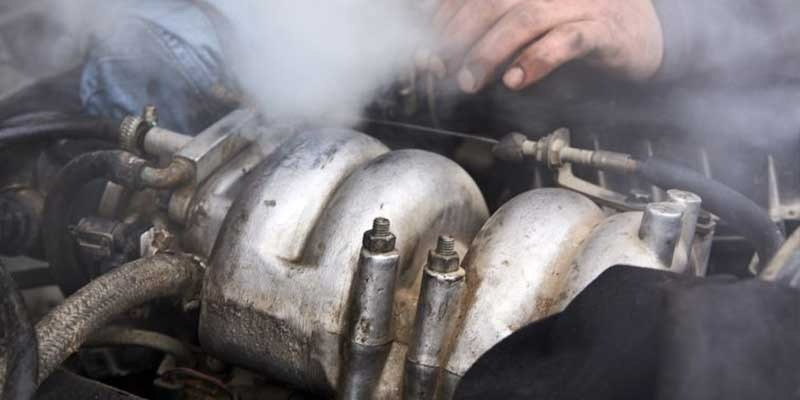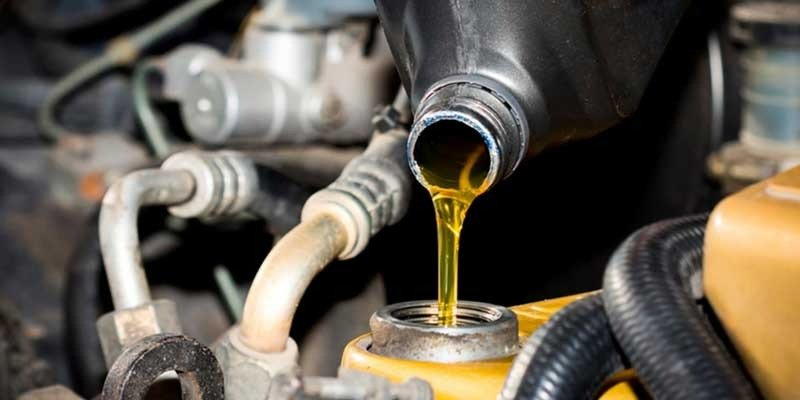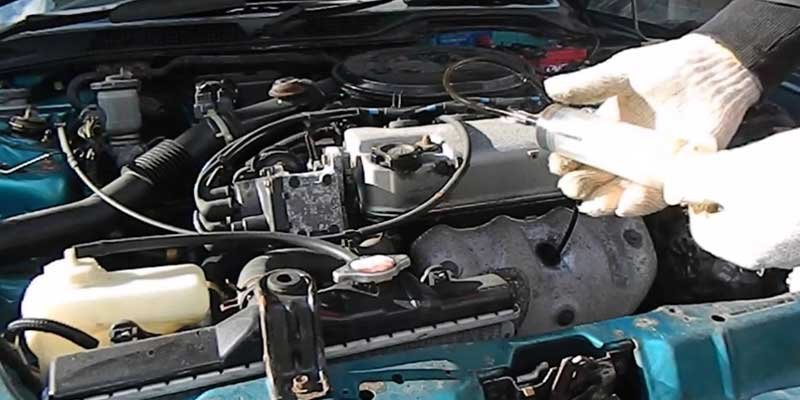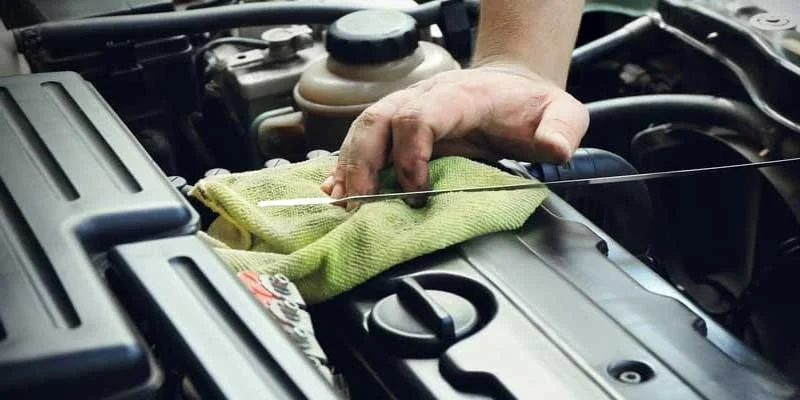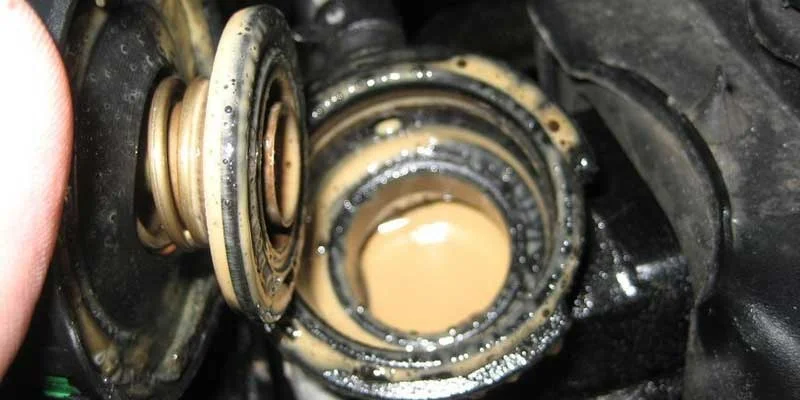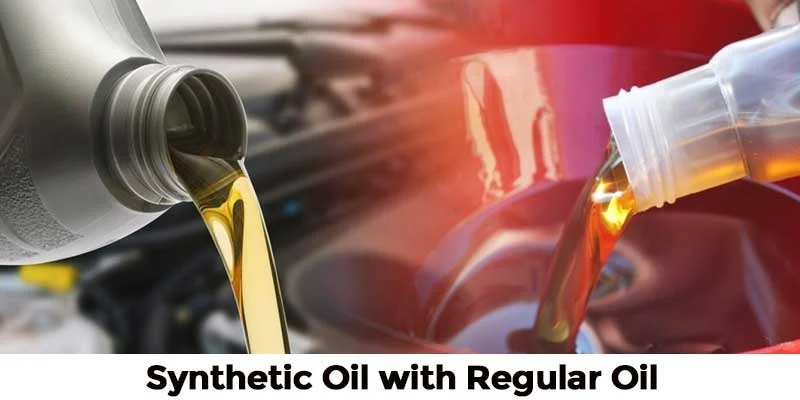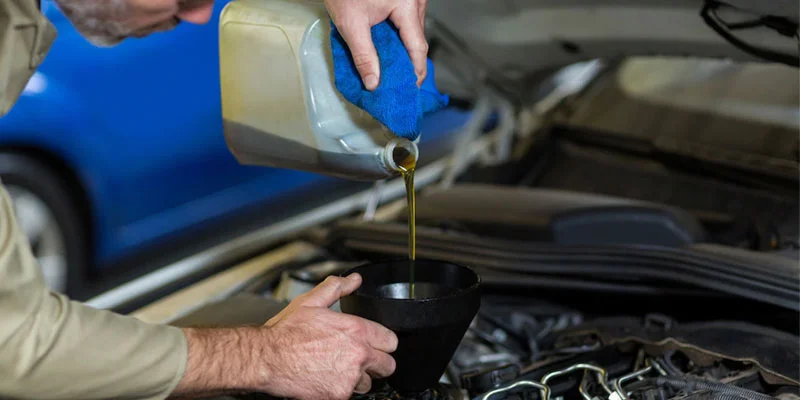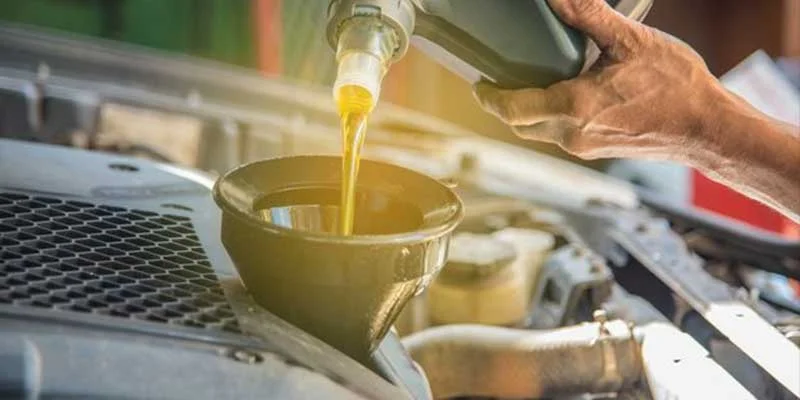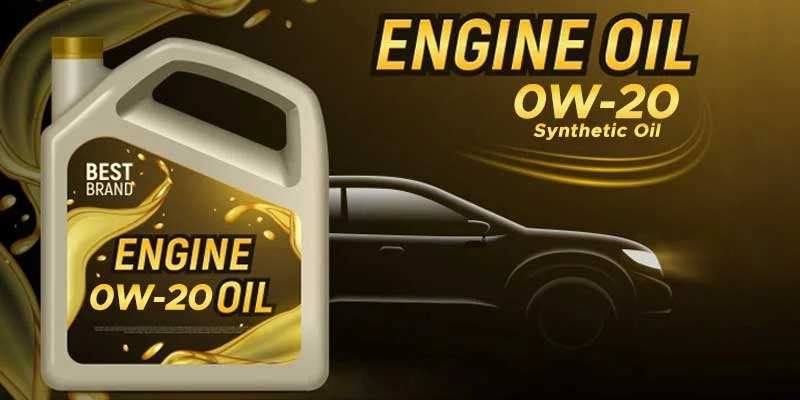How often does your car burn oil?
Oil is a lubricant that helps your vehicle move smoothly. When your engine burns oil, something has gone wrong with the engine or its components. It could mean that your engine is worn out or damaged.
As we all know, how crucial motor oil for any engine is? Lubrication needs to prevent metal-to-metal contact. It also plays a vital role in removing the debris and dirt from the internal engine.
Additives in oil stop any corrosion and improve the engine performance.
What does ‘Burning Oil’ Mean?
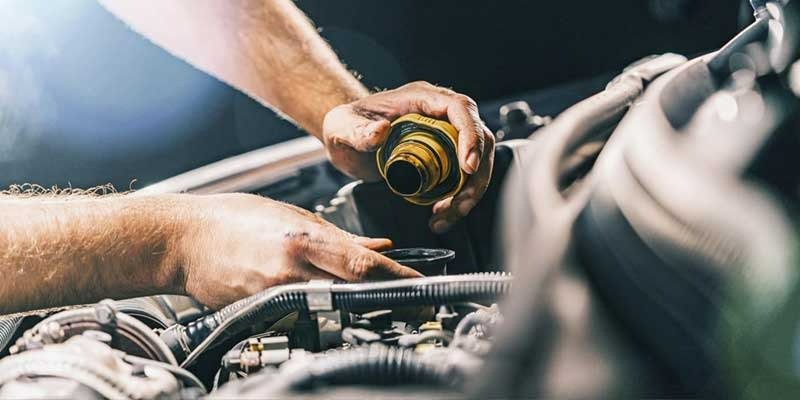
Any oil leak in the engine exterior or interior leads to a severe situation of oil burning. As the oil drips over the hot parts of the engine, it starts burning and producing a foul smell due to the intense heat it comes into touch.
Hence, the burning oil is an indicator of any leakage in your engine system. It should be fixed early to prevent any significant damage.
Normal Oil Consumption Vs. Oil Leakage
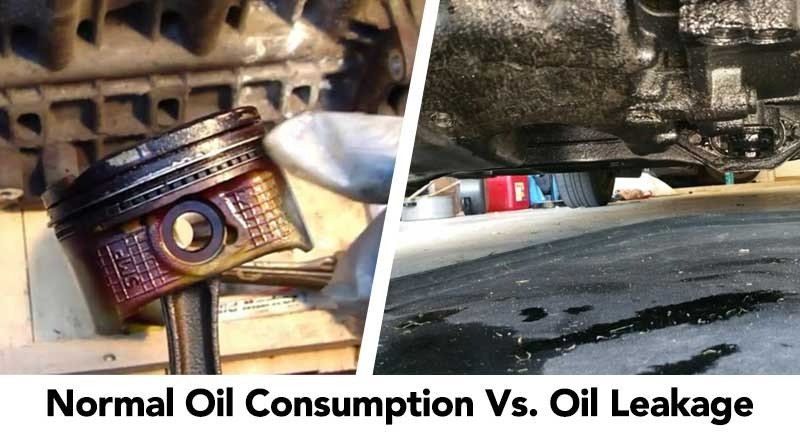
A car consuming oil is not referred to as the oil burning in harmful ways. You may need a lot of oil to manage the oil change intervals and maintain the fuel economy of your car.
Even the normal operations of a vehicle result in significant oil consumption. Hence, you must ensure that the engine should never of low on engine oil.
Oil Leak refers explicitly to the dripping of engine oil into the external part of your engine. If not fixed in time, these leaks may become more prominent, resulting in quick depletion of engine oil. Remember, such depletion does not benefit the car in any way. It can be fatal for your engine health as these leaks may also result in an engine misfire.
What are the causes of External oil Burning?
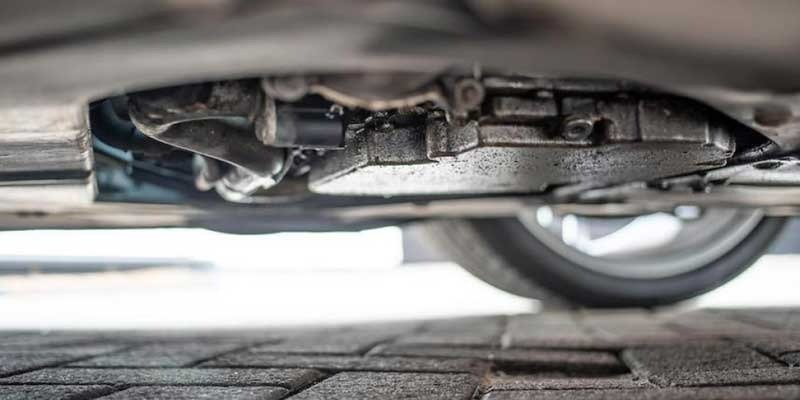
If the various components, including gaskets and seals, will wear off with time, it may result in external engine oil leakage. Any failure in these seals and gaskets gives engine oil a way to escape.
When this leaking oil comes in contact with hot exhaust, it starts burning, producing fire and smoke.
Some of the possible components that lead to external oil burning are:
1. Faulty head gasket
This gasket assists stop the cylinders’ firing pressure and blocks engine oil and coolant from leaking into and outside the cylinders. A blown head gasket is caused by engine overheating.
Overheating in engines is usually caused due to a lack of coolant, faulty radiators, and non-functioning water pumps.
If the gasket is damaged, the engine oil can find its way into the combustion chambers. The coolants inside the cylinder trigger the black smoke out of the tailpipe and the loss of coolant without any indication of leaks.
Other signs of a blown head gasket include an oil with white residues, the appearance of coolant in the radiators, coolant reservoirs, and overheating of the engine.
2. Oil pan damaged
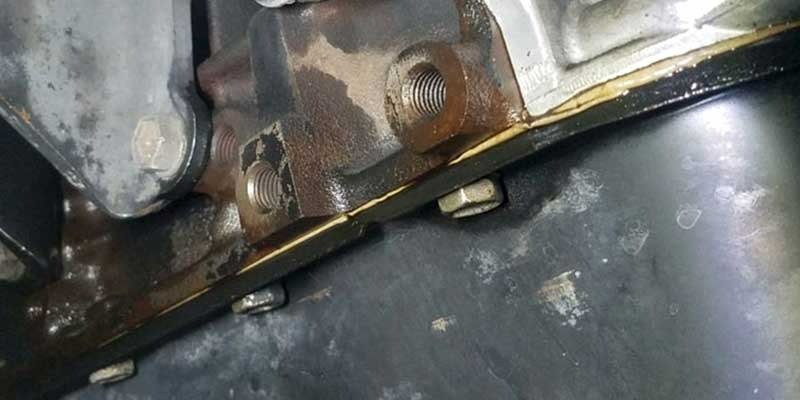
It is one of the components of the engine’s fluid lubrication system. It is connected to the bottom of the engine and assists in holding the oil required to lubricate the engine’s components.
Vehicles hitting rough or uneven surfaces may cause leakage in the oil pan and cause an oil shortage. It can also hinder the proper lubrication of engine parts.
The most obvious sign of a pan that is leaking is the visible oil droplets on the surface.
3. Worn piston rings
This ring is called an oil control ring. It helps keep the walls of the cylinder and moving engine parts lubricated and prevent oil from getting through the chamber of combustion.
A broken, stuck, or worn piston ring does not let oil lubricate engine components. It is why oil gets into the combustion chamber. If the rings maybe not functioning correctly, there are times when you notice engine noise and the release of blue smoke upon acceleration.
Another indication of a damaged piston ring is increased oil consumption, even if there is no leak from the outside. The worn piston rings can also cause the air filter to get oily.
4. PCV defective valve
PCV valves are referred to as positive crankcase vent valves that allow pressure release from the engine. When the engine lets off pressure, it exits through the PCV and reaches the intake manifold.
A stuck, clogged, or poor PCV valve won’t allow the pressure within the engine to exit. Instead, it builds engine pressure inside the PCV valve before returning this to the motor, causing it to blow up seals and putting oil into valves.
The PCV valve’s oil-burning indicates that the valve in the PCV is damaged and unable to transfer pressure from the engine.
5. Valve guide and leaks in seals
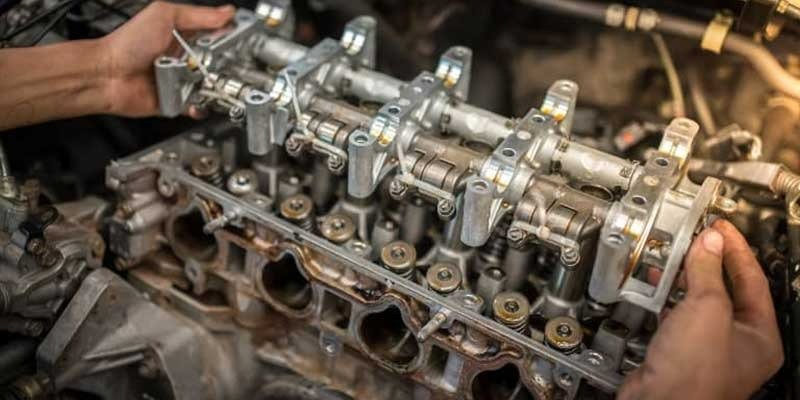
The intake and exhaust valves are designed to ensure your vehicle runs without a hitch. As the mixture of fuel-air flows into the cylinders through intake valves.
The burned mixture exits the cylinder via these valves. These valves are continuously lubricated and function smoothly without allowing oil to enter the fuel-air mix.
When the valve seals fail, they let oil into the combustion chamber as the valves operate. The bluish smoke from the exhaust while starting the car indicates that the seals have worn out.
6. Wrong Car Oils
Certain engines generate an enormous amount of heat when they operate. Using oil that cannot handle the warmth of your engine will cause the oil to burn out very quickly.
What are the causes of Internal Oil Burning?
If the oil is burning, it could be because the parts that stop the oil from entering the combustion chamber have worn out—for example, faulty valves, seals, rings, gaskets, etc.
It is where that mixes fuel and air and, when ignited by spark plugs, generates the energy to begin your vehicle. If these components fail, the oil seeps into the mixture of fuel and air, making the fuel burn.
What can I do if my car is burning oil?
If you suspect that the oil is burning into your car’s engine, you should get your vehicle inspected by a qualified mechanic. The more the oil burned into your combustion engine, the higher the damage to your engine.
Frequent oil level checks are essential to understand how much oil is burning inside the engine and if your car is running on sufficient engine oil levels or not. Always check the engine oil levels when the engine is cooling down.
To check the engine oil levels, open the hood, pull out the dipsticks, wipe it with a paper towel, reinsert them to check the current oil levels, and then examine the oil levels. If the existing oil levels are low, consider topping up engine oil to avoid damage.
How to Fix the oil Burning outside the engine?
It is essential to locate the source of leak or oil dripping that causes external oil burning. Once you find the leaking or faulty seal or oil gasket, replace it with the new seal.
A clogged oil filter is why oil cannot process correctly in the internal combustion, putting a lot of pressure on the crankcase and leading to a gasket leak. Check the engine gaskets and seals for leaks and replace them, if faulty, in time.
Here are some of the quick-fix solutions for engine oil burning:
- Fixing the worn ring pistons
- Replacing the blown head gaskets
- Repairing a damaged oil pan
- Replacing the bad spark plugs
- Improving the engine overheating problem
- For high mileage cars, topping up the engine oil at regular intervals
- Using the suitable types of engine oils
Can Engine Oil Additives stop Burning Oil?
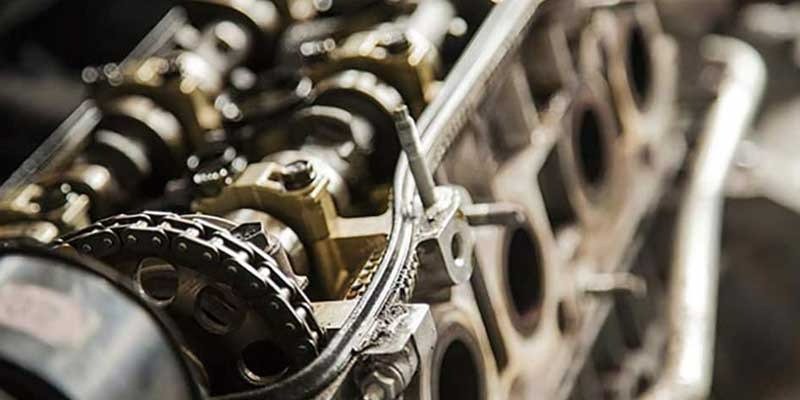
Yes! If you find that the car is consuming oil faster, you should consider adding some oil additives to deal with the car engine. It reduces the oil leak through gaskets and prevents oil burning.
Besides reducing oil burning, these oil additives have additional benefits such as better fuel efficiency, increased engine performance, and quieter engine.
Liqui Moly 2037 Pro line and Archoil AR9100 Oil additives are some useful oil additives that help reduce oil burning.
Frequently Asked Question (FAQ)
Can You Fix An Engine that Burns Oil?
Yes! You can fix an engine that burns oil by replacing the PCV valve. As the oil ends up sucking inside the engine through the air intake, an effective PCV valve can help resolve this issue.
What causes a motor oil to burn?
The worn-out parts of the engine are highly responsible for motor oil to burn. Check for the worn-out piston rings, valve seals, and gaskets to avoid motor oil from burning.
Why Is my Car burning oil but not leaking?
The worn-out cylinder walls or piston rings are responsible for burning oil as it creates a gap for letting the gasses escape easily. As the oil leaks into the combustion chamber, it burns off with fuel.
Conclusion
Oil burning is a common problem most people face while driving their cars. The oil-burning problem can occur for many reasons, such as old engine components, leaks, etc. But if you have checked all the possible causes and still facing the same problem, you should contact your nearest mechanics for further assistance. They will inspect your vehicle thoroughly and provide you best solution to resolve the issue.

My Name is Christopher Angels, and I am a postgraduate in mechanical engineering. Cars have always excited me as a child, and soon I decided to dive into the world of cars by pursuing mechanical engineering. I also worked as a Mechanic for over 3 years to understand Cars’ anatomy and how each part contributes to its working.
My Name is Christopher Angels, and I am a postgraduate in mechanical engineering. Cars have always excited me as a child, and soon I decided to dive into the world of cars by pursuing mechanical engineering. I also worked as a Mechanic for over 3 years to understand Cars' anatomy and how each part contributes to its working.

